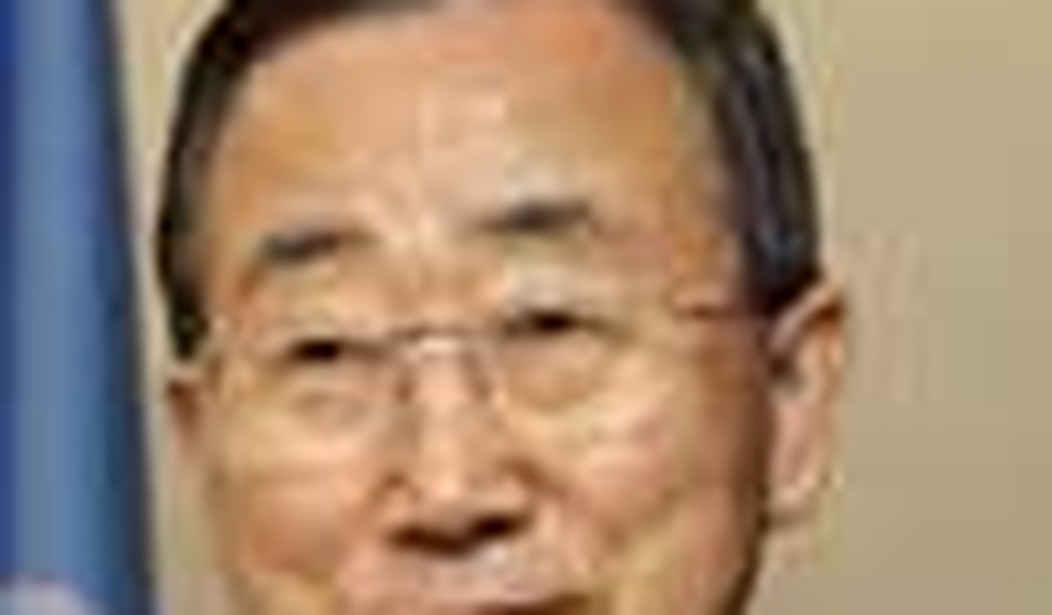One of the purposes of the United Nations was to prevent future genocides and human rights abuses. After the carnage of World War II, it was hoped that the worst abuses of human rights might be prevented. However, the discussion and support of human rights has always been influenced by the interests of nations forming the UN Council. Since the ending of the Cold War, the bipolar struggle that dominated the UN has receded and the interests of individual nations have become more obvious.
In the field of human rights this was most evident by the discrediting of the United Nations Commission on Human Rights (UNCHR). A succession of human rights-abusing governments won seats on the UNCHR, including Sudan, Nepal, Cuba, Zimbabwe, and Saudi Arabia. The nadir of the UNCHR came as Libya, a gross violator of human rights, obtained the chair leading to protests from human rights organizations. Even the New York Times ended up taking the side of John Bolton against Kofi Annan, a position they would have found hard to adopt on any other issue.
The failure of the UNCHR led to reform, and the Commission’s eventual replacement by the UN Human Rights Council. The resolution creating the new council was seen by the Secretary-General Kofi Annan as a “historic resolution… that gives the United Nations a much-needed chance to make a new beginning in its work for human rights around the world.” It was hoped that some safeguards put in place would effectively police the Council, and prevent the previous failings of the UNCHR. The US claimed reform did not go far enough. John Bolton said, “We did not have sufficient confidence in this text to be able to say that the Human Rights Council will be better than its predecessor.”
Time has proved Bolton right. Currently the Human Rights Council includes such paragons of human rights as Pakistan, Cuba, Saudi Arabia and China.
Questioning of the new Council’s ability to promote human rights is already taking place at the UN itself. The new Secretary-General Ban Ki-moon gave a speech earlier this month, and betrayed doubts about the new organization.
“The question for the Council, however, is whether you are fully meeting the high expectations which the international community has of you. What are those expectations? Most fundamentally, and in line with the very core jurisprudence of human rights, they are that this Council will recognize and promote the universal application of human rights values — and that it will do so without favor, without selectivity, without being impacted by any political machinations around the world.”
Proof of the Council’s failure came three days after the Secretary-General’s remarks. The Council forcefully answered Moon’s question, is the Council “fully meeting the high expectations which the international community has of you”, with a resounding “No.” The UN passed yet another one-sided censure of Israel, an admittedly common activity. Not everybody was happy. Canada, whose admirable John Peters Humphrey was the principal drafter of the original 1948 Declaration of Human Rights, said, “It was regretted that the draft resolution did not fully take into consideration the respective role of all parties and focused on Israeli action without referring to Israel’s right to defend itself. It did not present an accurate representation of the situation. For this reason Canada would vote against the resolution.”
Laughably, Sudan was also able to give its opinion on the resolution: “One could not compare Israel’s daily targeting against women and children with those who were fighting with primitive weapons. These crimes were categorically prohibited by international laws. Sudan did not approve of this targeting of civilians in any place and under any pretext.” This is a criticism that could be well-directed at Sudan itself, with their bombing of Darfurian villages, and now proven arming of the Janjaweed militias.
Time will tell if the new Human Rights Council will trouble itself with the Darfur genocide; it’s predecessor did not.
While the UN was founded with the best of ideals, it has always been hostage to its idealistic inclusiveness. The General Assembly of the UN proclaimed the 1948 Declaration of Human Rights as a “common standard of achievement for all peoples and all nations.” Yet, even the Declaration of Human Rights did not obtain universal support from the original members of the UN.
While no nation opposed the declaration, the USSR, Soviet supporting states, the apartheid South Africa, and Saudi Arabia abstained. The current concern about the Human Rights Council is just another symptom of this flaw in the UN. Until effective reform at the UN is introduced, including discriminatory views on the human rights standards of its constituent nations, the UN will continue to disappoint those who wish to see the spread of universal human rights.
Scoop Shachtman is a blogger at the group blog Drink Soaked Trotskyites for War, a left wing UK blog that takes its name from a famous insult directed at Christopher Hitchens.








Join the conversation as a VIP Member